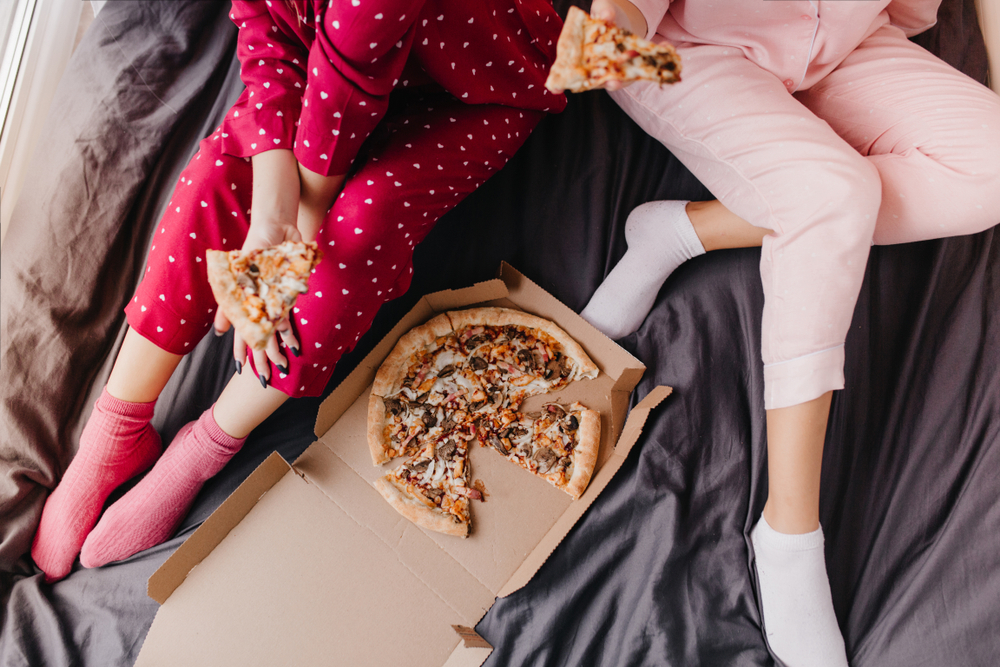The Best and Worst Foods to Eat Before Bed
Tossing and Turning? Your Bedtime Eating Habits Might Be to Blame
We’ve all been there—lying in bed, tossing and turning, wondering if that late-night snack was a mistake. The truth is, what you eat before bed can significantly impact your sleep quality, energy levels the next day, and overall health. Understanding which foods promote restful sleep and which ones keep you counting sheep can transform your nighttime routine and help you wake up refreshed.
If you’re ready to stop tossing and turning and start waking up refreshed, call our Encino sleep center at (818) 300-0070 to begin your journey to better sleep health.

Why Timing and Food Choice Matter for Sleep
Your body’s internal clock, known as your circadian rhythm, doesn’t just regulate when you feel sleepy—it also controls your digestive system. When you eat close to bedtime, your body has to work harder to digest food while simultaneously trying to wind down for sleep. This can lead to restless nights, vivid dreams, or waking up feeling groggy.
The key is choosing foods that support your body’s natural sleep processes rather than fighting against them. Some foods contain compounds that actually promote sleepiness, while others can spike your energy or cause digestive discomfort that interferes with rest.
The Best Foods to Eat Before Bed
Sleep-Promoting Powerhouses
Cherries and Cherry Juice: Tart cherries are one of the few natural sources of melatonin, the hormone that regulates your sleep-wake cycle. Studies have shown that drinking tart cherry juice can increase sleep duration and improve sleep quality. A small glass about an hour before bed can work wonders.
Almonds and Walnuts: These nuts contain magnesium and melatonin, both of which can help you fall asleep faster. Almonds also provide protein that helps stabilize blood sugar overnight, preventing those 3 AM wake-ups. A small handful (about 1 ounce) is the perfect portion.
Bananas: Rich in potassium and magnesium, bananas help relax your muscles and nervous system. They also contain tryptophan, an amino acid that your body converts into serotonin and then melatonin. Plus, their natural sugars can help tryptophan cross the blood-brain barrier more easily.
Greek Yogurt with Honey: This combination provides protein to keep you satisfied through the night, while honey contains glucose that can help reduce levels of orexin, a neurotransmitter that keeps you alert. The probiotics in yogurt may also support better sleep quality.
Herbal Teas: Chamomile tea is perhaps the most famous sleep aid, containing apigenin, an antioxidant that binds to brain receptors to promote sleepiness. Passionflower, valerian root, and lemon balm teas also have calming properties that can help you unwind.
Turkey: The tryptophan in turkey really can make you sleepy—it’s not just a Thanksgiving myth. Pair a few slices with some complex carbohydrates to help the tryptophan reach your brain more effectively.
The Ideal Bedtime Snack Formula
The best pre-bedtime snacks combine a small amount of protein with complex carbohydrates. This combination helps stabilize blood sugar and promotes the production of sleep-inducing hormones. Think whole-grain crackers with almond butter, or a small bowl of oatmeal with sliced banana.
The Worst Foods to Eat Before Bed
Sleep Saboteurs to Avoid
Caffeine-Containing Foods and Drinks: This might seem obvious, but caffeine lurks in unexpected places. Coffee, tea, chocolate, and some pain relievers can keep you wired for hours. Caffeine has a half-life of about 6 hours, meaning if you have coffee at 4 PM, half of it is still in your system by 10 PM.
Spicy Foods: That late-night curry might seem like a good idea, but spicy foods can raise your core body temperature and cause heartburn or indigestion. Your body temperature naturally drops as you prepare for sleep, so foods that heat you work against this process.
High-Fat and Fried Foods: Foods like pizza, burgers, and fried chicken take considerable energy to digest. They can cause discomfort and may trigger acid reflux when you lie down. Your digestive system slows down at night, so these heavy foods can sit in your stomach for hours.
Alcohol: While alcohol might make you feel drowsy initially, it disrupts your sleep cycles later in the night. It prevents deep, restorative sleep and can cause you to wake up frequently. Even moderate amounts can significantly impact sleep quality.
High-Sugar Foods: Ice cream, cookies, and candy can cause blood sugar spikes followed by crashes that may wake you up in the middle of the night. The sugar rush can also make it harder to fall asleep initially.
Large Meals: Regardless of what you’re eating, consuming large portions close to bedtime forces your digestive system to work overtime when it should be resting. This can lead to discomfort, indigestion, and poor sleep quality.
Processed Foods High in Sodium: Salty snacks can make you thirsty, leading to multiple bathroom trips during the night. High sodium intake has also been linked to more restless sleep and frequent awakenings.
Timing Is Everything
Even the best sleep-promoting foods won’t help if you eat them at the wrong time. Here are some guidelines for optimal timing:
- Finish eating large meals at least three hours before bedtime
- Have your last small snack one to two hours before sleep
- Stop drinking large amounts of fluids two hours before bed to minimize nighttime bathroom trips
- If you must eat something within an hour of bedtime, keep it very light and sleep-friendly
Creating Your Personal Sleep-Friendly Evening Routine
Everyone’s body responds differently to foods, so pay attention to how different options affect your sleep. Keep a food and sleep diary for a week or two, noting what you eat before bed and how well you sleep. You might discover personal trigger foods or find that certain combinations work particularly well for you.
Consider these strategies for optimizing your evening nutrition:
Start winding down your eating as the sun sets. This aligns with your natural circadian rhythm and gives your digestive system time to process food before sleep. If you’re genuinely hungry before bed, choose one of the sleep-promoting options rather than reaching for whatever’s convenient.
Stay hydrated throughout the day so you’re not playing catch-up with water intake in the evening. This helps prevent late-night thirst without requiring excessive fluid intake before sleep.
Your Recipe for Better Sleep
Your pre-bedtime food choices can either set you up for a restful night or leave you staring at the ceiling. Focus on light, easily digestible foods that contain natural sleep-promoting compounds, and avoid anything that might spike your energy, cause digestive distress, or interfere with your body’s natural sleep processes.
Remember, good sleep hygiene extends beyond just food choices. Creating a consistent bedtime routine, keeping your bedroom cool and dark, and limiting screen time before bed all work together with smart food choices to improve your sleep quality.
Sweet dreams start with smart choices. Your future well-rested self will thank you for making these small but impactful changes to your evening routine.
Transform Your Sleep, Transform Your Life in Encino
You deserve to wake up feeling refreshed, energized, and ready to embrace each day. If you’re tired of struggling with sleepless nights and feeling exhausted despite your best efforts, know that you don’t have to face this battle alone. Whether you’re in Encino, Sherman Oaks, Tarzana, or Woodland Hills, professional help is within reach. Your sleep challenges may feel overwhelming right now, but imagine how different your life could be with proper guidance and personalized care.
Don’t let another week pass wondering “what if?” Take control of your sleep health today. Call our sleep specialist in Encino at (818) 300-0070 and discover how our comprehensive approach can help you reclaim the peaceful, rejuvenating sleep you’ve been longing for.
